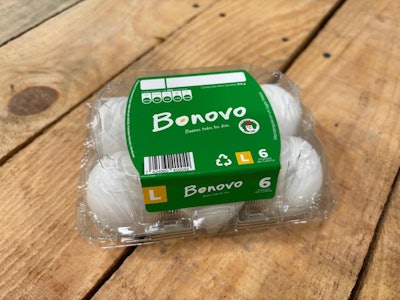
Honduras is a Central American nation with a low egg consumption. As per the latest numbers I have gathered, Latin America has an average egg consumption of 234 eggs per capita, while Honduras roughly reaches 172 eggs, one of the lowest in the region. Other sources place this number in 210 eggs per person. In any event, it is below the regional average.
This situation has motivated projects such as that from the International Egg Foundation, that I blogged about a few months ago. We all know that eggs provide for a wonderful animal protein source for an impoverished population.
It came to my attention a few weeks ago that a new egg production company has started operations in Honduras, just 50 km away from Tegucigalpa, the capital city. Desarrollos Agroindustriales de Centroamérica, S.A. (Dacsa) has around 500,000 housed hens. It is already the third largest company in the country, but they are aiming to be at the top.
Early this month was the official launching of their brand of white eggs, Bonovo, although they might foray with brown eggs. The farm is fully automated – something not very common in Latin America – in production management, temperature control, feed, water, weighing, egg classification and packaging.
Luis Valle, one of the founders and present CEO, has a lot of experience in the area. He comes from a family that has been in the egg business for the last 46 years. He also worked for the largest egg distributor in Honduras – and maybe in all of Central America. Also, he has served as president of the National Poultry Producers Association of Honduras (ANAVIH) as well as of the Latin American Poultry Producers Association (ALA).
After more than three years of planning this new entrepreneurship, Valle is very optimistic regarding the opportunities that destiny has in store for them. New stages – such as an egg processing plant and a spent hen processing unit – have already been planned.
This will certainly make more eggs available to the Honduran population.
What do you think?



















